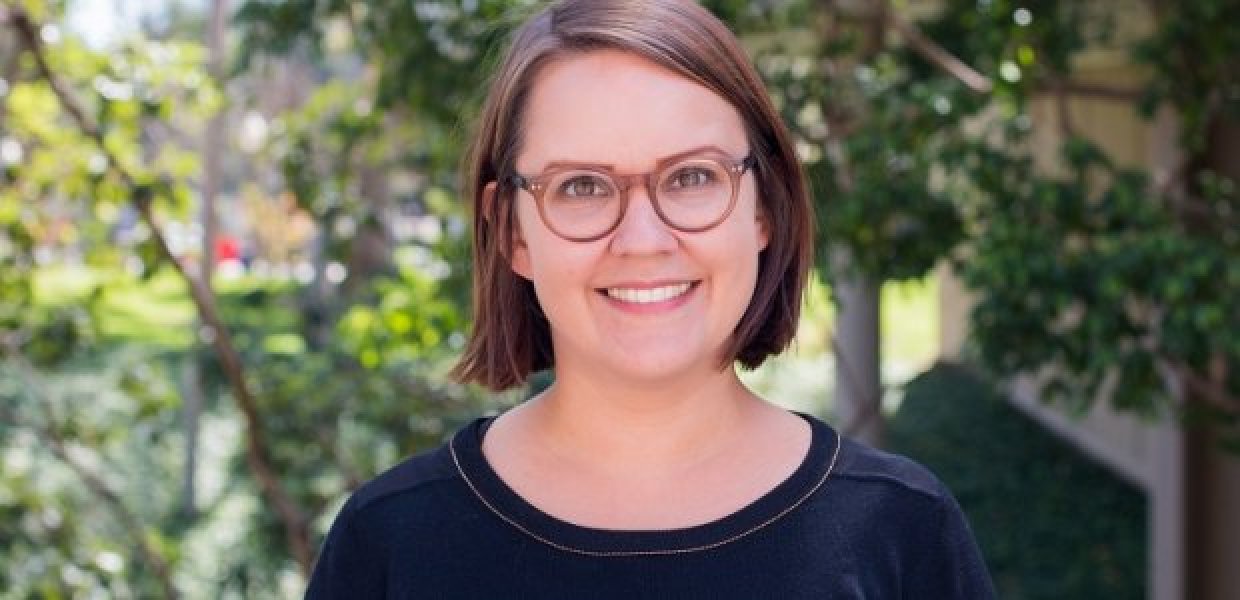Name: Laura Kangasluoma
Program: Master of Specialized Journalism
Expected graduation: May 2018
Hometown: Helsinki, Finland
Why did you choose to attend Annenberg?
There’s a foundation in Finland called the Helsingin Sanomat Foundation. Its mission is to secure the future of quality journalism and to support freedom of speech. Every year, the foundation gives out scholarships to experienced Finnish journalists to go and study at different universities around the world. One of the universities the foundation works with is USC, and the scholarship they give is connected to the Specialized Journalism program. I had read about the scholarship and the program and I also knew people who had been here at USC in the past. From all I learnt, I felt confident that this would be the right place for me. I wasn’t wrong.
Tell us about a great experience or opportunity you've had here at Annenberg.
One of the greatest experiences for me was interviewing Professor Tomi-Ann Roberts for my thesis. Professor Roberts works at Colorado College, and because of the travel grant Annenberg provides for graduate students to help them do reporting on their thesis, I was able to travel to Colorado Springs to interview her. She is the main interviewee of my thesis, and after talking to her on the phone and doing interviews, the experience of getting to meet her face-to-face was unforgettable.
What makes Annenberg special?
The networks it provides the students. As a foreigner who moved to L.A. just for this program, I don’t have the connections that I have at home, where I know exactly how to find interviewees. Here, whenever I’ve been in a situation where I’ve needed to contact a specific person, or just needed someone with specific expertise to interview, there has always been a professor or another student who has been able to put me in contact with someone. That has been amazing.
What's one thing at USC that no student should miss?
Everyone should take advantage of all the incredible events organized all over USC. There are guest speakers and panelists all over campus every day that you shouldn’t miss. For me, one of the greatest moments was hearing Issa Rae speak at USC Annenberg HBO Diverse Voices Forum, and Chris Kraus, the author of “I Love Dick,” speak at an event for Visions & Voices.
Tell us about an experience you’ve had outside of class.
I came to L.A. with my husband, who took a year off from his work back home just to be here with me. So, for me, the best experiences outside of class have involved getting to know the city with him, being forced to put school work aside for a while. I highly recommend that to everyone: if you just focus on school, you’ll miss out on so much L.A. has to offer.
What have you learned from other students?
I’m 34, so I’m somewhat older than the M.S. students I befriended during Summer Immersion, and also older than some of the people in my own program. What the younger students have sparked in me is a renewed passion for journalism. I’ve worked full time in Finland for about a decade, and hearing constant talk about the crisis of the industry has sometimes made me pessimistic about the future of journalism. Watching the people here, just entering the business, has been very inspiring and their enthusiasm has been infectious.
What has been your greatest challenge?
The language. I speak and write pretty well in English, but still, it takes a toll on your brain, trying to understand everything you learn in English, and then somehow translate it into your native tongue just to make absolutely sure you got it. What has been great at Annenberg is that there are so many professors willing to help you with your grammar. I am, for example, forever grateful to Henry Fuhrmann, who helped me fix the spelling, wording, and punctuation of my thesis.
What have you learned about living off-campus? Or about commuting?
I live in Silver Lake, and I come to campus every day on the metro: first I take the Red Line and then I change to the Expo Line. Before coming here, I thought L.A. was only a city for cars, and I’ve been pleasantly surprised how good the metro system is. Yes, the intervals for the trains are closer to 15 minutes than the 3 minutes I’ve become used to in other big cities around the world, but still, the trains work and it’s possible to get around the city without a car. I use my time commuting listening to podcasts or I have Siri read me articles I need to read for my classes.









